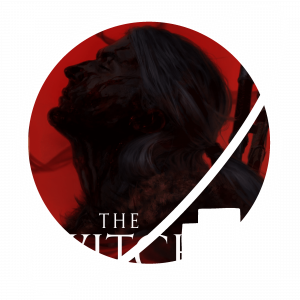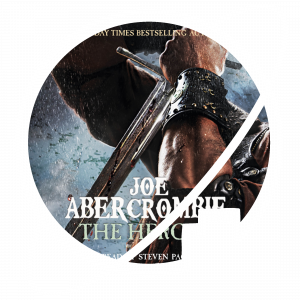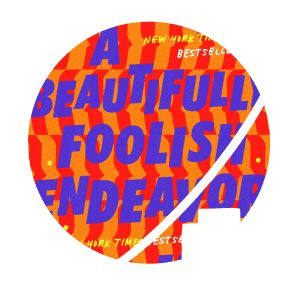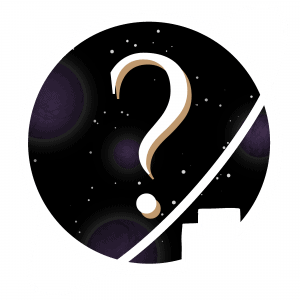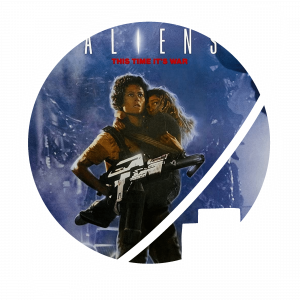Welcome to the Escape Velocity Collection!
We are an opinionated group of friends reviewing all sorts of fantasy and science fiction media. Don’t forget to get to know the curators and visit our curated Collection, where we discuss the stories that never cease to transport us to another world.
Will you escape with us?
LATEST POSTS:
- Book written by Isaac Asimov
- Published in 1953
- Part 3 of the Foundation Series
With the existence of a Second Foundation revealed, the Mule can not sit idle and wait for the organisation to overthrow his empire. He sends two of his trusted lieutenants on a search for the mysterious sister organisation that is supposedly located at ‘the other end of the galaxy’, far away from the first Foundation on Terminus.
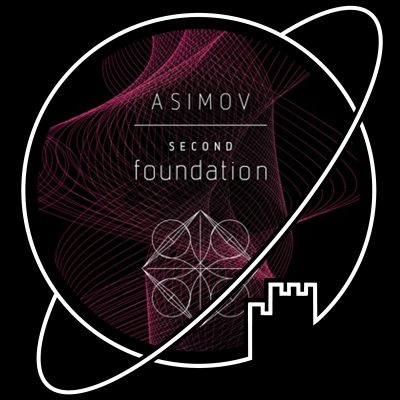

Second Foundation is, in its style, more similar to Foundation & Empire than it is to Foundation. It features only two stories, one telling the story of the Mule’s search for the Second Foundation, the other relating the same search by the First Foundation.
Whilst I appreciate Asimov’s choice to focus more on a smaller set of characters again, I keep finding most of the adventurers he writes to be relatively forgettable, and their adventures to be relatively flat (though not lacking some good twists towards their ends). Whilst we are closer to the action, Asimov just doesn’t manage to create a lot of suspense. His characters are just too collected, too intelligent, always choosing a debate over rapid action. You will not find it surprising that his better works tend to focus on detective-like stories.
I never really liked the introduction of the Mule and his mind-bending powers in what I would have preferred to have remained more of a hard sci-fi series, and his continued presence in the third book was a bit of a disappointment. Arkady Darell, the fifteen year old main character of the second story, is probably the best character Asimov had written to date, standing head and shoulders above the others – but she can’t save the series on her own. She is a sign, however, of Asimov’s development as a writer.
Overall, while I recognise that Foundation is a massively well-liked series by fans of classic science-fiction, I find the series only so-so. Beyond the first book, which is distant from its characters but focuses on interesting concepts, Asimov writes what is (to me) a set of relatively simple and middle-of-the-road adventure stories in space, similar in style to the likes of Niven’s Ringworld or even Vance’s Planet of Adventure. I find that those kinds of stories don’t hold up nearly as well today as more concept-focussed work from the same age, not the least of which are Asimov’s own Robot-works. Foundation is another one of those trilogies where it would perhaps be best to read the first book for the worldbuilding, and give the other two a miss.
Tagged:
- Book written by Isaac Asimov
- Published in 1952
- Part 2 of the Foundation Series
As the Galactic Empire is slowly succumbing to decay and degeneration, the influence of the Foundation on the edge of the galaxy keeps growing rapidly- until word of their rise reaches Trantor and the dying Empire itself, in the person of the great general Bel Riose, sets its sights on the Foundation. People start to panic: how does an imperial fleet honing in on Terminus fit in the Seldon Plan?
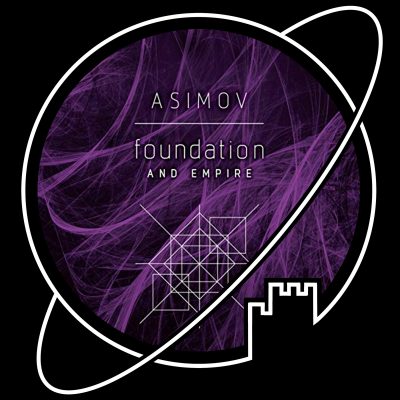

Writing a review of Foundation and Empire feels somewhat pointless. If you’ve picked up Foundation and decided to read on, it’s not likely I’ll dissuade you. If you haven’t read Foundation, there’s no point in reading Foundation and Empire. Still, if you’re in doubt about whether or not the series is for you, and you’ve decided to peek at the review of the second part…
The second part in the series continues with its fascinating experiment of the application of statistics to human history, here exploring, for example, the meaning of individual actions or extremely unlikely events in predicting the future on the basis of psychohistory and statistics.
Three things set the second book apart from the first. Firstly, the book is split into two novella’s and therefore only includes two arcs (as opposed to the five arcs in the first book). That leads to the second important difference: because the book has fewer story arcs, Asimov finds a bit more time to develop his characters. I will not say that he is particularly good at it, but there is at least a lot less distance between the reader and the events taking place. The third difference is the appearance in the second half of the book of a number of plot elements and story tropes that are far more reminiscent of fantasy stories than science fiction.
Whilst I think that Asimov’s choice to move towards a more character-focussed narrative is laudable, I think his execution leaves something to be desired, and I was personally a bit disappointed by the fantasy twists in The Mule – in all honesty, it is not the kind of story that I read Asimov for. As a result I think that Foundation and Empire is actually a bit less good than Foundation, although it is a bit more accessible. That said, the teasing of a Second Foundation in the second half of the book did make me want to pick up that book right after.
Tagged:
- Book written by Isaac Asimov
- Published in 1951
- Part 1 of the Foundation Series
Asimov’s legendary science fiction novel describes the struggle of the scholars of the Foundation to prevent the galaxy from descending into a dark age of 30 millenia after the fall of the Galactic Empire, guided by the psychohistorical statistical predictions of the almost mythological mathematician Hari Seldon. Covering hundreds of years of political development, the reader witnesses the transformation of the Foundation from an institute for the preservation of knowledge to a geopolitical giant.
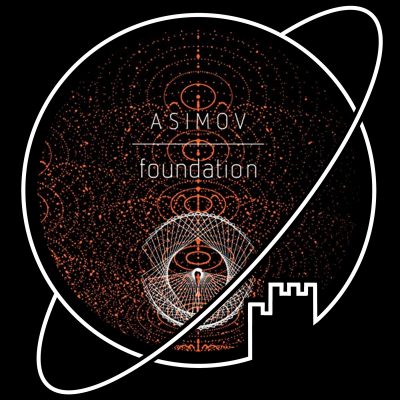

I have a bit of a difficult relationship with Asimov’s Foundation Trilogy. On the one hand, I am a fan of Asimov and his Robot-cycle, and I love the concepts that underpin the story. On the other hand, I feel that the nature of the book as a collection of short stories hurts it in its current format, and more importantly, doesn’t fit the style of fiction of the 2020s.
Let’s start with the positive: Foundation is a story based on the fascinating premise that (inexpertly put) if a group of anything is large enough, like anything in nature, its movement becomes statistically predictable. Asimov posits that the same goes for humanity, and introduces an enormous human Galactic Empire. At the start of the first book, the psychohistorian Hari Seldon predicts its collapse and an ensuing 30.000 year dark age. The only way to prevent this, is to gather and safeguard all human knowledge. Seldon predicts that if his instructions are followed, the dark age can be shortened to a mere millenium. And so the story launches into a description of the preparation and execution of Hari Seldon’s plan, via the creation of a Foundation and that Foundation’s political and geopolitical exploits.
Because the stories originally appeared separately as short stories in separate issues of 1940s science fiction pulp magazines, the successive phases of the Seldon plan each feature separate arcs and a new cast of characters, the characters of the previous story having been relegated to history or myth. On the one hand, this allows for the long-term development of political situations and for psycho-history to work on the large scale it is intended for. On the other hand, this means that the book remains very distant from both the action and its characters. The plot might be interesting, but it is presented rather matter-of-factly, in a style that I don’t think would make the cut today. The story could have been written with more of a personal touch, which we know because the later installments in the same series have more elements of character in them. The fact that Asimov hadn’t developed to that point yet shows in Foundation, and makes it far less accessible than it could have been.
So the question is, is Foundation still worth reading? It would say that it depends. It remains a legendary piece of fiction, and I would recommend it both to the genre nerds that want to have read the classics, and to people who are interested in the type of science fiction that focuses on concepts over people. But I think that most people with modern tastes would find it a bit too dry. If they want to get into Asimov specifically, I would recommend the great I, Robot or The Caves of Steel instead.
Tagged:
- Book written by Ernest Cline
- Published 16 August 2011
- Followed by Ready Player Two
In a post apocalyptic 2045, Wade, a poor kid from the stacks, spends most of his waking hours in the OASIS, which is both an MMORPG and virtual reality public space that has taken over many real life social functions, from going out to attending school. Because of his fascination with the OASIS’ designer, Wade is the first one to find and beat the first step in the hunt for an easter egg, a secret reward hidden in the video game that delivers control of the game’s vast digital infrastructure to the account that finds the solution first. This succes slingshots Wade from a nobody into a public figure, and more and more people flock to his side as he takes on the evil corporation attempting to beat him to the prize.
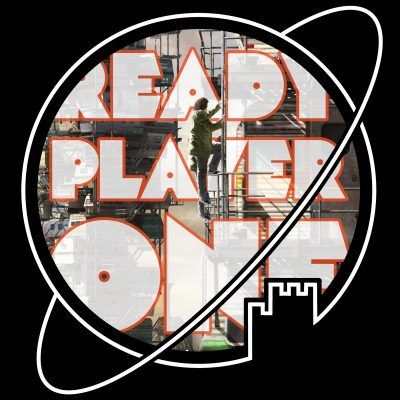

I read Ready Player One some time ago, so some of my recollections of the plot and characters may be off. I am however still fairly confident in my assessment that this book, while it’s not terrible, shouldn’t have an audience.
The writing isn’t exactly poor, but it is very YA. Ready Player One is a book about video games, about kids in high school, and about their awkward first love. The prose is simple, the message shallow, the characters not particularly thoughtful, and their emotional moments revolve around teenage romance (as opposed to the very real social issues that also feature in the book). At the same time, Ready Player One is positively drowning in eighties nostalgia, which I would expect to be meaningless to a YA audience (who were born in the nineties when the book was released, and are even further removed now). I don’t think that the 35-45 year olds that may feel the nostalgia are particularly interested in the book’s themes. I don’t get who is supposed to read this.
Besides that weird dichotomy, the books also just isn’t very good. The main character does well in the book because he has immersed himself in eighties trivia as opposed to trying his best in school, which is a very dubious message. There is a sort of strange gatekeeping dripping from the book, suggesting that anyone who does not understand all the D&D and Pac-Man and WarGames and Blade Runner and what not references has no business reading this book. The deification of eighties pop culture is just downright weird.
Besides, the book’s plot is effectively the plot of a videogame – do x, get stronger, do y, get stronger, do z, get stronger, etc. until you beat the final boss. The protagonists’ characters are digital, so while losing them is a setback, the stakes just aren’t there. The bad guys are more or less literally EvilCorp Inc. and no attempt is made at making them understandable (in fact, it turns out they also keep slaves in the real world!). If you strip the endless references, you are left with a hollow feeling – there is just a lot of nothing in this book.
Now, if you did grow up in the 80s, then this is probably a great read. And the pacing is good, the book is not boring. Overall, however, I’d recommend you spend your time elsewhere.
See also:
- Book written by Andy Weir
- Published in 2011
- Standalone
NASA Astronaut Mark Watney was only supposed to be on Mars for 31 days. When a Dust storm almost kills him, the rest of the crew leaves – under the impression that their colleague is actually dead. In his logs, Watney keeps track of his days (or “sols” – Mars days) on the Red planet, and his efforts to survive on the supplies and equipment left behind with him. Every so often Mars tries to kill him, but Watney is resourceful and keeps his spirits up with humour.


It’s been a while since I last read a book I could barely put down. The Martian was a delight to read. Sure, it’s a book about survival, but more importantly it is a book about a snarky man making jokes in the face of hardship. And boy does Watney face a lot of them.
This book does feature a lot of math, which is super not my thing. I quickly decided to just let the numbers pass me by and focus on the story. This was not a problem and didn’t impact my enjoyment of the book.
A friend pointed out that she doesn’t like how unemotional all the characters in the Martian are, and to an extent she is correct in that. Everyone is, like, super professional about what’s going on. We never get a nice window into the characters’ psyches. However, it didn’t really bother me while reading. The pacing is nice, and the gravity of the situation is clear to the reader, and I found that I didn’t need to see the emotional journey of the characters in order to have one of my own. And boy did I have an emotional journey. The stakes are very clear in the Martian. A cold lonely death. On MARS.
I found Watney’s situation weirdly relatable. Like, there is no way I would ever end up in a situation like this, and yet I constantly felt like this could totally happen to me and can you imagine how that would feel. Perhaps that is because I enjoy playing video games, and this book has a setup that feels very game-y. For Watney, Mars is the ultimate escape room.
Overall this book is a nice quick read for anyone who enjoys their drama with a healthy dose of humour and sass.

I would argue that The Martian is a bit of a unique reading experience, in that it actively invites the reader to puzzle along with the stranded Watney and his crazy science experiments – on the level of actual chemistry and physics.
Now, I realise that a good part of the puzzeling is probably wrong. I’m not a chemist myself, but one of my friends who is has implied as much. Weir touches on international space law (on which I wrote my thesis) once in the book, and missed the mark by a wide margin there. So I’m not sure whether we can trust him on getting his science straight.
But really – it doesn’t matter much. By writing about these chemistry puzzles, Weir makes you think about the kinds of issues that the people who work on space exploration actually deal with, and gives you a new perspective on (especially near future) sci-fi.
What is more, the book is a true page turner. That word gets thrown around a lot, but in the case of The Martian, I think it really is an apt description. The tension is constant, the troubles keep building, but – crucially – Watney keeps making progress. True, every step he takes he stumbles over a new problem – but then he tackles that head-on too. The book is constantly both satisfying and exciting. The pacing is excellent. Watney is optimistic and sassy, and Weir gives him a great sense of humor. Perhaps that is what sets the book apart most from what you’d expect – most sci-fi writers would focus on the existential dread of Watney’s situation, but Weir wrote a book that is just good fun.
The flipside is, however, that the book does not have particularly interesting character development – or even a particularly interesting overarching plot. Watney, being stuck alone on a planet (that’s the whole premise!), doesn’t have a chance to develop any interpersonal relations much, and the ‘antagonist’, for lack of a better word, is the uncaring environment. It didn’t matter to me, because the other aspects of the book easily make up for the lack of emotional content – but it is something to keep in mind if you like character driven fiction.
Overall, a light read, fast paced, humourous, but still very much hard sci fi. A definite recommendation, though perhaps less well suited for people who to take a deep dive in the character of a book’s protagonist.
See also:
Tagged:
- Book written by Arkady Martine
- Published 26 March 2019
- Part 1 of the Teixcalaan Duology
Lsel is a small space station on the edge of the gigantic interplanetary empire of Teixcalaan. When the Lsel ambassador to Teixcalaan disappears, Mahit Dzmar is sent to replace him – carrying a version of his memories fifteen years out of date in her mind. When she arrives, she finds that her predecessor didn’t just disappear, and she is sucked up in the politics and poetry of the Teixcalaanli court as she investigates his death and the secrets he took to his grave.
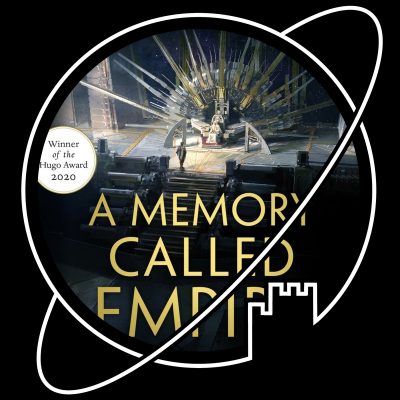

Listened to the audiobook with Amy Landon. She does a great job reading it but in general this is a book I would recommend reading on paper – I felt like going back and double checking things just a bit too often.
A Memory Called Empire is probably the best (new) book I’ve read in over a year. I’m recommending it to people left and right – and now I’m recommending it to you.
A Memory Called Empire is an intriguing mix between a political thriller, a cyberpunk detective mystery and a character-driven sci-fi drama. That may seem a lot, but what makes the book brilliant is that it is very lean in its choices – the worldbuilding, for example, is relatively minimal. It is deep where it needs to be and cursory where there is no more than a fleeting mention: there are no infodumps, just tantalising snippets in the pre-chapter codices. There isn’t a tonne of action, but just enough to keep up the pace and thrill. The character moments are far enough apart not to slow the story down but close enough together to keep you growing closer to the characters. Perhaps most importantly, Martine keeps revealing little bits of the central secret all the way through, at exactly the right pace (for me) to keep me hooked constantly.
In addition, in true science fiction fashion, the book explores a very interesting premise – what would happen if people in certain roles could carry the memories of their predecessors with them. The idea of Lsels ‘imago lines’ and some of their implications is evocative and intriguing, and makes me want to read more books in the same universe to delve deeper into the topic.
Finally, there is a fascinating undercurrent of loving and hating the culture of a conqueror – perhaps not an experience particularly near to me, but I am sure there are plenty of people in this world that, like Mahit, have lived their live studying a culture that is at once both beautiful and oppressive.
All in all, A Memory Called Empire is an incredibly well-written book that works on multiple levels. Yes, the politics take some wrapping your head around. But unless you really dislike that kind of reading, I would recommend you give this book a shot. Well deserving of the Hugo!
Tagged:
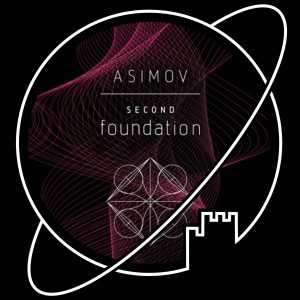
Review: Second Foundation – Isaac Asimov
Part three of the Foundation Series – Both the Mule and the Foundation go on a search for the Second Foundation, a mysterious organisation supposedly existing at the other end of the galaxy.
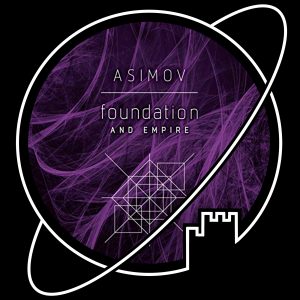
Review: Foundation and Empire – Isaac Asimov
Part two of the Foundation Series – As the Foundation’s influence grows, the sights of the dying Galactic Empire finally turn to Terminus itself…
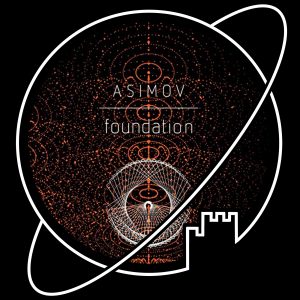
Review: Foundation – Isaac Asimov
First part of the Foundation Series – The scholars of the Foundation try to prevent a long dark age after the fall of the Galactic Empire guided by psychohistorical statistical predictions of future events.
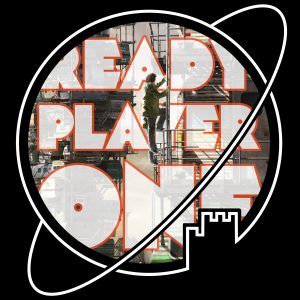
Review: Ready Player One – Ernest Cline
Wade is slingshotted from a poor kid to an online hero when he is the first to beat the initial step in a hunt to control the virtual reality video game that public life depends on in this post-apocalyptic world.

Review: The Martian – Andy Weir
NASA Astronaut Mark Watney was only supposed to be on Mars for 31 days. When a dust storm almost kills him, the rest of the crew leaves – under the impression that their colleague is actually dead…
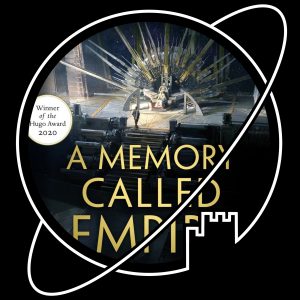
Review: A Memory Called Empire – Arkady Martine
Part one of the Teixcalaan Duology – Mahit Dzmar, ambassador of a small space station to an interplanetary empire, is sucked into the politics and poetry of the court when she investigates the disappearance of her predecessor.









